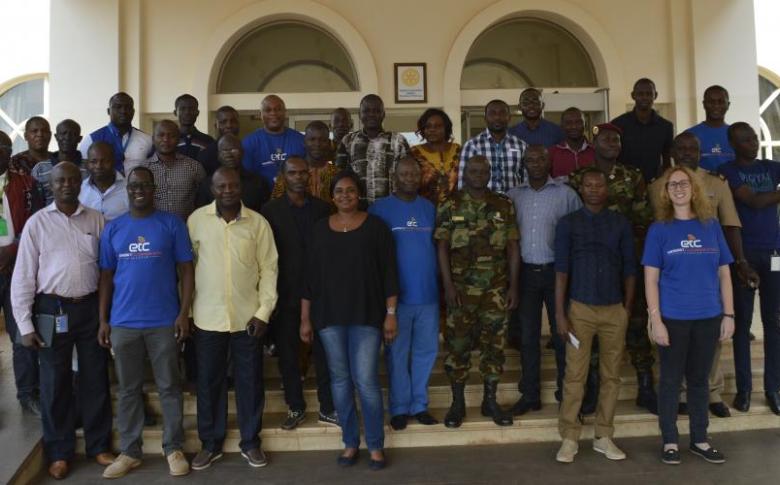First ever ICT4Gov training completed in Bangui, CAR

It’s been exactly 4 years since I was in Bangui and here I am, back in the Central African Republic’s capital to help the WFP Country Office ICT team deliver the inter-agency “ICT Emergency Management for Government and Partners” training (ICT4Gov), which was held from 16 - 18 January 2018.
This 3-day training aimed at developing knowledge and skills to plan, implement and manage ICT solutions in support of emergency preparedness and response as well as enhance collaboration and cooperation between government stakeholders and humanitarian responders.
31 participants from 25 different entities (Government ministries, National and International NGOs and UN agencies) shared their experiences and learned about ICT emergency preparedness. WFP Country Office Director, Felix Gomez, opened the training session by explaining what the Emergency Telecommunications Cluster (ETC) is and its important work in C.A.R. He emphasized on this training’s unique opportunity for us to meet in this room and the need to work together.
I was amazed by the level of engagement during the sessions and variety of experience amongst the participants. We reviewed the humanitarian framework, international law, emergency phases and discussed the best ways to manage ICT in emergencies. We also discussed contingency planning together as well as looked at how to better communicate and what it takes to be a good leader.
Mohamedou, ETC Coordinator in CAR, and Nono, Head of ICT in WFP CAR, put the group to task by asking participants to draft a Concept of Operations(CONOPS), working together on the details of an ICT action plan and exit strategy.
The instructors’ experiences shared were truly inspiring. I think most of us will remember the living conditions described by Mohamedou during his deployment in the post-earthquake response in Haiti as well as Nono’s radio frequency and equipment challenges in Lebanon while supporting the Whole of Syria operation.
The energy was high in the room and people’s enthusiasm was contagious. For a lot of us, the training was the beginning of new partnerships and friendships.
The group expressed interest to continue this important engagement. Participants will be invited to the next local ETC working groups to continue exploring ways on how to best improve joint preparedness and response activities in common operational locations that currently need critical ICT services.
By Caroline Teyssier, Deputy Global ETC Coordinator